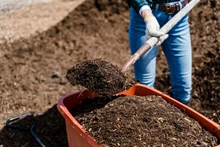
The Government of India has set a target of expanding the cultivation of hybrid rice to 25 percent of the area occupied by the crop by 2015. Current growth trends suggest that this target will not be met, despite the potential contribution of hybrid rice to lagging growth in national rice yields, overall rice production, land-use reallocation and food security. This unfolding experience suggests a different trajectory from that of China, where hybrid rice accounts for more than half of the area under the crop and has contributed significantly to yield and output growth, reallocation of land to other agriculture and nonagricultural uses and food security. This paper examines the technical challenges, market opportunities, and policy constraints relating to hybrid rice in India.

Shriram Bioseed, the hybrid seed business of DCM Shriram, and KeyGene, an agri-biotech company based out of the Netherlands and US, have signed an agreement for a multi-year research programme.
“Key Gene’s innovation platforms will be used to boost these important traits in Bio seeds rice germplasm,” Paresh Verma, Director Research at Shriram Bioseed, said in a statement. “ The goal is to benefit the rice farmers by providing them with the seed of high performing hybrids,” Arjen van Tunen, Chief Executive Officer of KeyGene, said.
There are obvious challenges in transforming a technology such as hybrid rice into an economically relevant production factor. One way of addressing these challenges is to develop a better understanding of the complexity in how factors of technology production—scientific capital, technical know-how, breeding materials, and seed production systems—are translated into real outputs, such as marketable quantities of hybrid rice seed or hybrid rice as a tradable commodity itself.

Farmers’ concerns about the inferior grain quality, low market price, susceptibility to biotic stress, and poor relative yield gains discouraged many early adopters in the intensive rice– rice systems of south India and the rice-wheat systems of northwestern India in the early to mid-1990s. Some of the earliest evidence on the economics of hybrid rice adoption in India with survey data from small samples of households in Andhra Pradesh, Karnataka, Tamil Nadu, Haryana, Orissa (now known as Odisha), Punjab, and West Bengal. Although the sampling frames are insufficiently representative and the methods do not sufficiently address potential sampling bias, these early observations do provide some useful insights on those few households cultivating first generation hybrids in India. The poor quality seed, variable yields, poor adaptation to certain agro-ecological conditions, susceptibility to pest and disease pressures, and low prices received for inferior quality grain were to blame for poor adoption rates. In general, he concluded that hybrids available in the market at that time were not profitable for farmers in India.
The new research shall be to develop improved rice hybrids for higher yields, increased tolerance to abiotic stress and better grain quality.










